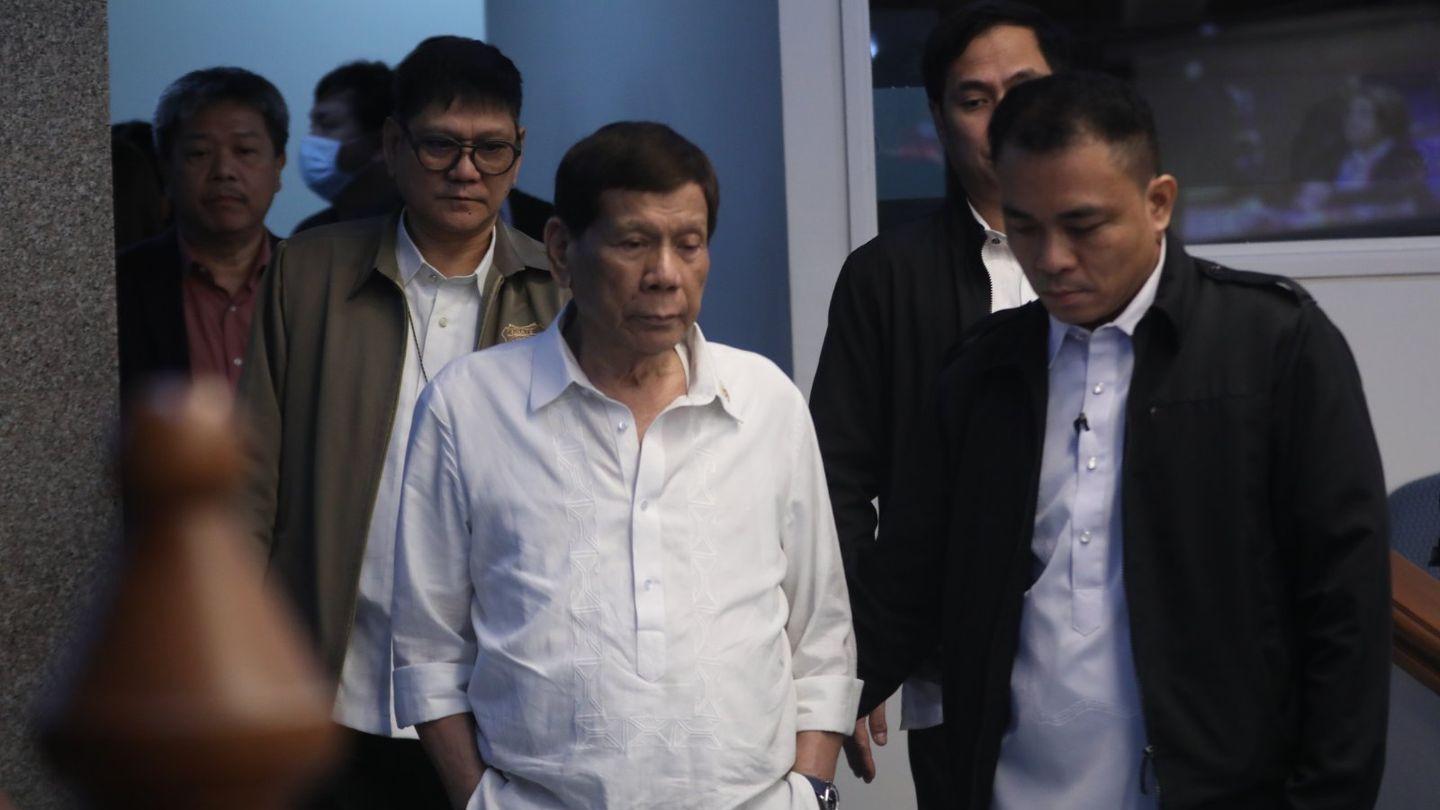Former President Rodrigo Duterte defended his controversial drug war stance, stating it was necessary to protect the nation and its people.
Duterte further stated that he takes full legal and moral responsibility for all the successes and failures of his government's campaign against illegal drugs.
"The drug war should be judged by the Filipinos," Duterte said in a Senate interview on October 28, Monday, before he was to attend a Senate Blue Ribbon Subcommittee self-inquiry into his administration's anti-drug campaign.
This will be his first attendance at any investigation concerning the drug war.
The Senate Blue Ribbon Subcommittee's investigation is led by Senate Minority Leader Aquilino "Koko" Pimentel III. Duterte will meet with victims of the drug war and even sit next to his political opponent, former Senator Leila De Lima, and senators who criticized the bloody drug war, expressing his hope for fair treatment in the Senate investigation.
During his confrontation with De Lima, he said, "I am here to settle accounts for what I did as president, so there is no problem."
Duterte was unable to attend the House quad-comm hearing last Tuesday (October 22), where he was invited as a consultant.
The former chief executive was absent due to "feeling unwell" among other reasons. He did express his willingness to attend future quad-comm hearings, "preferably after November 1."
Duterte has always viewed drug addicts as victims and patients needing medical help, not criminals.
"I believed then and still believe now that rehabilitation, not the fear of death or imprisonment, is key to bringing drug addicts back into a just and tolerant mainstream society," he added. The former chief executive stated that he would not make excuses or apologize for the policies implemented during his presidency.
"I did what I had to do, believe it or not, I did it for my country," he added.
Duterte also stated that the drug war was not about killing people, but about protecting the innocent and helpless.
"The drug war is to eradicate illegal substances like methamphetamine, cocaine, heroin, marijuana, and party drugs because they are a menace that can destroy people, families, communities, and interpersonal relationships, and undermine the social structures that bind society in peace, harmony, and brotherhood," he said.
Duterte mentioned that he has established a drug rehabilitation center in Davao City, managed by the city government's doctors, psychiatrists, nurses, and health workers, to care for the comprehensive rehabilitation of those who use illegal drugs.
"But make no mistake, I despise drugs, and I abhor the demonic elements of suppliers, dealers, and pushers," he said.
In his statement, Duterte recalled teaching at the police academy when he was a prosecutor, instructing them that if a suspect is armed and they feel their life is threatened, they should shoot the suspect in the head, killing them to reduce the number of criminals in the community. "This is what I said when I was a fiscal and teaching at the police academy," he said.
"No forgiveness is given, nor is it sought," he added. Taking full responsibility
Duterte stated that he takes full legal responsibility for all the successes and shortcomings of the drug war.
"For everything the police did under my command, I take full responsibility. It should be me, not the police acting on my orders—it's unfair to them, they were just doing their duty," he said.
He said that being president was never easy, nor should it be.
"I did my best, steadfastly addressing the illegal drug issue," he added.
Nothing to be proud of, however, for opposition Senator Risa Hontiveros, the Filipino people will never be proud of the Duterte administration's implementation of the drug war.
This is because, despite the "nanlaban" narrative against alleged drug users and dealers, Hontiveros stated that the previous government's anti-drug campaign resulted in the deaths of 122 minors.
"If this really was a drug camp, why were an estimated 122 children killed, including an innocent one-year-old baby? Did they resist?" Hontiveros pointed out in her opening remarks.
For many victims of the drug war, Hontiveros said, defending their rights has not been easy.











